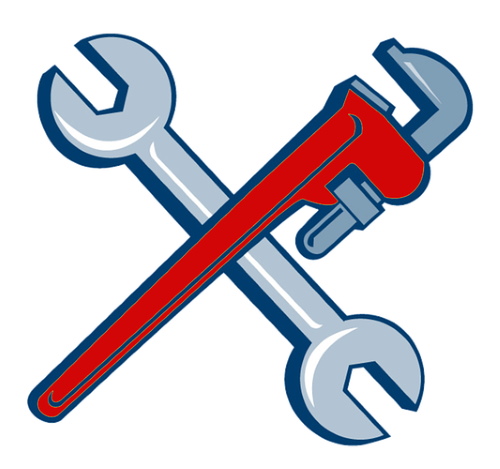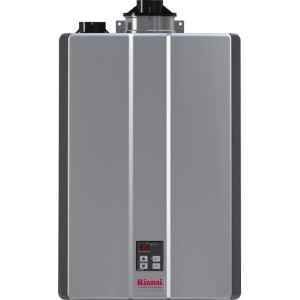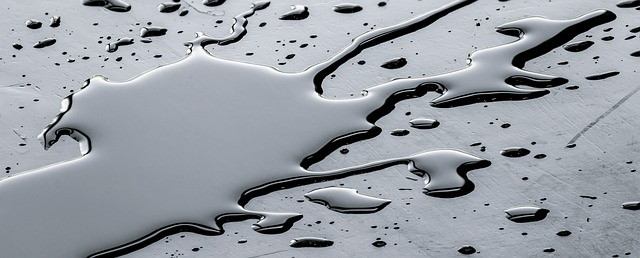- Home
- Tankless water heaters
- Tankless water heater loud noise
The Ultimate Guide to Addressing Tankless Water Heater Loud Noise Issues
 photo: pixabay
photo: pixabayIn the world of modern water heating systems, tankless water heaters are known for their efficiency and continuous hot water supply.
However, like all home appliances, they're not without their quirks. One common concern many homeowners encounter is a tankless water heater loud noise.
Whether it's a persistent humming, an unexpected gurgling, or an alarming banging, these noises can be both a nuisance and a sign of underlying issues.
Fortunately, there are ways to both identify and address these sounds, with a range of solutions spanning from simple DIY fixes to more in-depth repairs.
In this guide, we'll dig deep into the causes of these problems and provide step-by-step advice on how to silence your tankless system, ensuring a quiet and efficient operation.
Importance of understanding the loud noises emitted by tankless water heaters
Tankless water heaters typically produce normal noises like a soft humming from internal components, clicking during startup or shutdown, a mild flowing sound as water moves through, faint ticking as metal parts expand and contract, and the soft whirring of fans in certain models.
In terms of household appliances like tankless water heaters homeowners can experience the following noise levels:
Normal noise levels:
- 20-40 dBA: Quiet, like a whisper or ticking clock.
- 40-60 dBA: Moderate, like regular conversation.
High noise levels:
- 60-80 dBA: Loud, like a busy street or vacuum cleaner.
- 80-100 dBA: Very loud, similar to a blender or lawn mower up close.
For a tankless water heater, if it's louder than 60 dBA, it might be considered noisier than average.
However, any sudden or excessively loud changes in these sounds might indicate an issue and should be checked.
Understanding these issues is crucial for several reasons:
- Early detection of problems: Much like a person who knows the normal sounds of their car can identify when something sounds "off," being familiar with the standard operational sounds of a tankless water heater can help homeowners detect potential issues early on. A sudden or unusual noise can be an early warning sign of a malfunction or a component in need of attention.
- Maintaining efficiency: Noises can sometimes indicate inefficiencies in the system. For instance, a whistling sound might hint at scale build-up, which can reduce the heater's efficiency. By addressing these noises and their causes promptly, homeowners can ensure that their system continues to operate at peak efficiency.
- Safety concerns: Some sounds, especially loud banging or popping, can be indicative of more serious issues that, if left unattended, could pose safety risks. Understanding these loud noises allows homeowners to take timely action, preventing potential hazards.
- Extending the lifespan of the heater: By addressing the root causes of noises promptly, homeowners can prevent further damage to the heater, ensuring a longer operational life and getting better value for their investment.
- Peace of mind: Unexplained noises can be a source of concern for many homeowners. By understanding what these sounds mean, homeowners can have peace of mind knowing whether the noise is a normal operational sound or if it's something that requires attention.
- Cost savings: Catching and addressing issues early, based on the noises the heater makes, can lead to significant savings. It's often cheaper to fix a problem in its initial stages than to address it after it has exacerbated or caused further damage.
Common types of noises and their causes
 Rinnai tankless water heater
Rinnai tankless water heaterHere are the typical noises associated with both electric and gas-powered tankless water heaters, along with reasons why understanding these sounds is important.
- Whistling
- Hammering or pounding
- Buzzing or humming
- Rattling or clicking
- Gurgling
- Roaring and rumbling
Whistling
Whistling noises in tankless water heaters can primarily be traced back to two factors: scale build-up and excessively high water flow rates.
Particularly in areas with hard water, tankless heaters frequently face the problem of scale accumulation. This hard water, rich in minerals like calcium and magnesium, leads to the formation of "scale" or "limescale" layers within the unit.
This mainly affects the heat exchanger, causing restricted water flow and the characteristic whistling sound. But the implications of scale extend beyond mere noise.
As an insulator, scale hampers efficient heat transfer, resulting in diminished heating performance and higher energy consumption.
Left unchecked, this can culminate in permanent damage, necessitating expensive repairs or replacements. Regular maintenance, such as descaling and using water softeners, is essential to prevent these complications and prolong heater life.
Conversely, the flow rate also plays a pivotal role in the noises produced by these heaters.
When water surges through the heater at a swift pace, it creates turbulence in the confined spaces of the heat exchanger and piping.
This turbulence, intensified by obstructions or the sinuous nature of the exchanger's passages, produces high-frequency vibrations audible as whistling or whooshing noises. Beyond being a sound annoyance, high flow rates can strain the heater's components, speeding up wear and tear and heightening the risk of malfunctions.
Hence, balancing the flow rate and regularly checking for blockages becomes paramount to ensure both quiet and efficient heater operation.
Hammering or pounding
Tankless water heaters can sometimes produce alarming hammering or pounding noises, commonly termed as "water hammer." This phenomenon arises when there's an abrupt change in water flow, creating shockwaves that reverberate through the system's pipes.
This can often be likened to the abrupt halt of a moving car, where the momentum causes a jolt, but in the case of tankless heaters, it's the water's momentum that's suddenly halted, producing the loud, hammering sound.
Such noises aren't just disturbing; they can indicate potential harm to the system. The repeated stress from these shockwaves can strain pipes, weaken joints, and even lead to leaks or malfunctions.
Addressing the root cause is vital for the system's longevity.
Measures like installing air chambers or water hammer arrestors, which act as shock absorbers, adjusting water pressure, or incorporating slow-closing valves can mitigate these loud noises, ensuring both the efficient and quiet operation of the heater.
Buzzing or humming
In the realm of tankless water heaters, a common auditory concern that users often report is a persistent buzzing or humming sound. This distinct loud noise can be traced back to multiple sources.
One primary cause is the vibration of internal components, especially when the unit is working at its peak capacity. As water circulates and the heating elements engage, these vibrations can become more pronounced, leading to the audible hum.
Another potential origin is the electric elements or transformers within the unit, which, due to their inherent operation or any loose connections, can produce a steady buzz.
While a faint humming might be expected during regular operation, any loud or disruptive humming should be addressed promptly.
Extended exposure to such noises can indicate misalignments or wear within the tankless water heater, which could escalate to more significant problems over time.
Rattling or clicking
Rattling or clicking noises often suggest the presence of loose or misaligned components within the unit. Over time, with regular wear and tear, parts such as valves, screws, or internal brackets might become loose, leading to the audible rattling as water flows through or when the unit cycles on and off.
The clicking sound, on the other hand, might be associated with the heater's ignition process, especially in gas-powered tankless models. Every time the burner ignites, a distinct click can be heard, signaling the start of the heating phase.
While occasional clicking during ignition is standard and not a cause for concern, persistent or irregular clicking might indicate issues with the ignition system or gas supply in the tankless water heater.
Clicking noises in a tankless water heater may also arise from the expansion and contraction of its internal metal components as they heat up and cool down. This natural phenomenon is particularly noticeable during the startup and shutdown phases.
Similarly, continuous rattling sounds suggest the need for a thorough internal inspection to identify and tighten any loose components. Ignoring these sounds can lead to further complications, potentially compromising the heater's efficiency and lifespan.
Gurgling
The primary cause for gurgling sounds typically revolves around air bubbles trapped within the water or sediment buildup at the bottom of the unit. As the water heats up and moves through the system, these air pockets or sediments get agitated, leading to the unmistakable gurgling sound. In particular, if the water supply contains a high amount of dissolved gases or if there's been a recent disruption in the water line, the likelihood of these gurgling noises increases.
Continuous gurgling, however, can be more than just a minor annoyance in a tankless system; it might be indicative of an underlying issue.
If the loud gurgling persists, it might be time for a thorough flush and cleaning of the system to remove any debris or sediment.
Proper maintenance and timely interventions, such as descaling treatments, can help alleviate these sounds and ensure the tankless water heater operates smoothly and efficiently.
Roaring
A dirty or malfunctioning gas burner can result in incomplete combustion. This improper combustion can produce a loud, roaring sound and may even release soot or produce a distinct odor. Apart from the noise, it can also pose a risk of carbon monoxide production. Regular inspections and cleaning of the burner can ensure it operates safely and quietly.
For efficient and safe combustion, tankless water heaters require an adequate supply of air. A lack of proper air, often due to blocked vents or inadequate venting design, can lead to suboptimal combustion and rumbling noises. It's essential to ensure that vents are clear of obstructions and that the system is designed to supply sufficient combustion air.
Related:
Troubleshooting noisy water tank heater
Prevention
One of the most effective strategies in dealing with issues related to tankless water heaters, especially those concerning loud noises, is to take preventative measures.
Regular maintenance can nip potential problems in the bud, minimizing the need for extensive repairs down the line. For instance, in areas with hard water, it's prudent to install a water softener. This reduces the mineral content in the water, subsequently lowering the risk of scale formation, which can not only cause noises but also hamper the efficiency of the heater.
Apart from hardware additions and inspections, understanding your tankless water heater's recommended flow rates and ensuring they're consistently met can be a simple yet effective preventive measure against noises like whistling.
Similarly, being vigilant about checking for and tightening any loose components can preempt issues like rattling. By embracing a forward-thinking approach, homeowners can extend the lifespan of their tankless system, safeguard its efficiency, and most importantly, enjoy a noise-free operation, eliminating the need for frequent troubleshooting and fixes.
Conclusion
Tankless water heaters, while small and efficient, can exhibit a range of noises, including tankless water heater loud noise, stemming from various issues such as mineral scale build-up and malfunctioning components.
These noises, particularly the louder sounds, not only serve as indicators of operational inefficiencies but can also flag potential safety concerns.
Factors like hard water, debris, suboptimal design, and lack of regular maintenance contribute to these challenges. Addressing the root causes, such as through descaling, ensuring proper ventilation, routine inspections, and component replacements, is paramount to maintaining the heater's performance and longevity.
Regular attention and care can help homeowners reap the benefits of tankless water heaters while minimizing disruptions and risks.
- Home
- Tankless water heaters
- Tankless water heater loud noise






